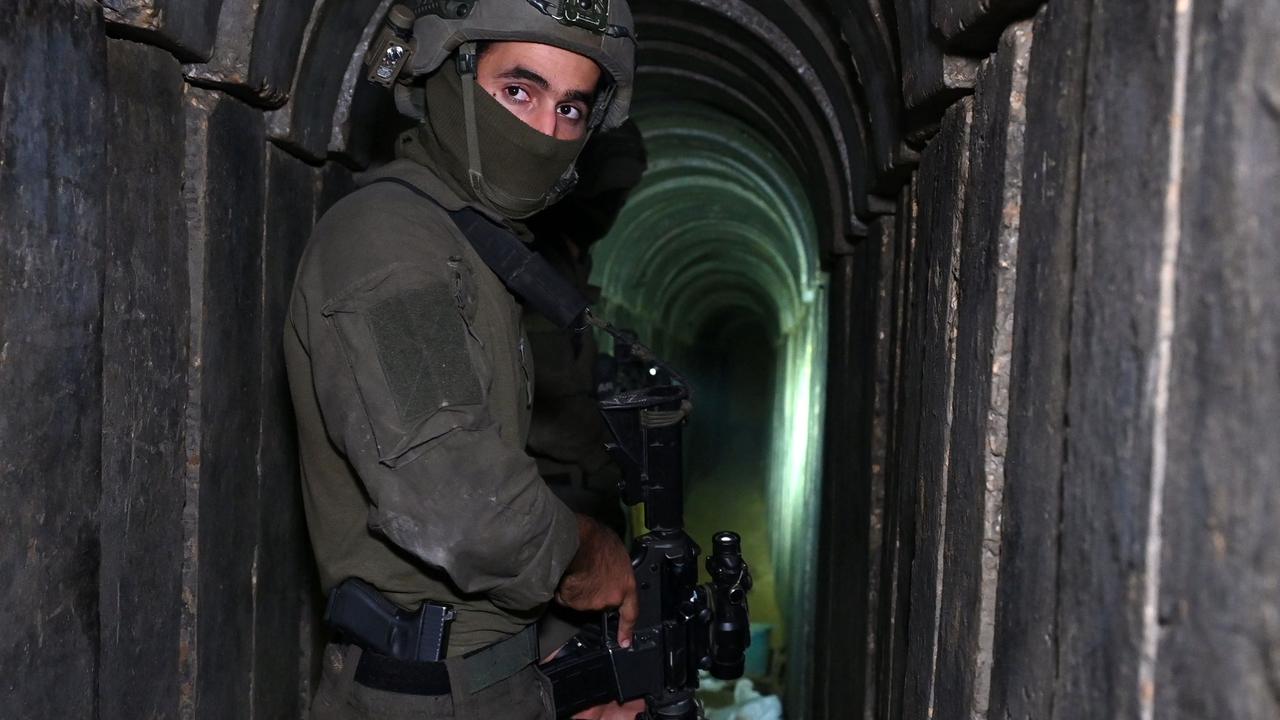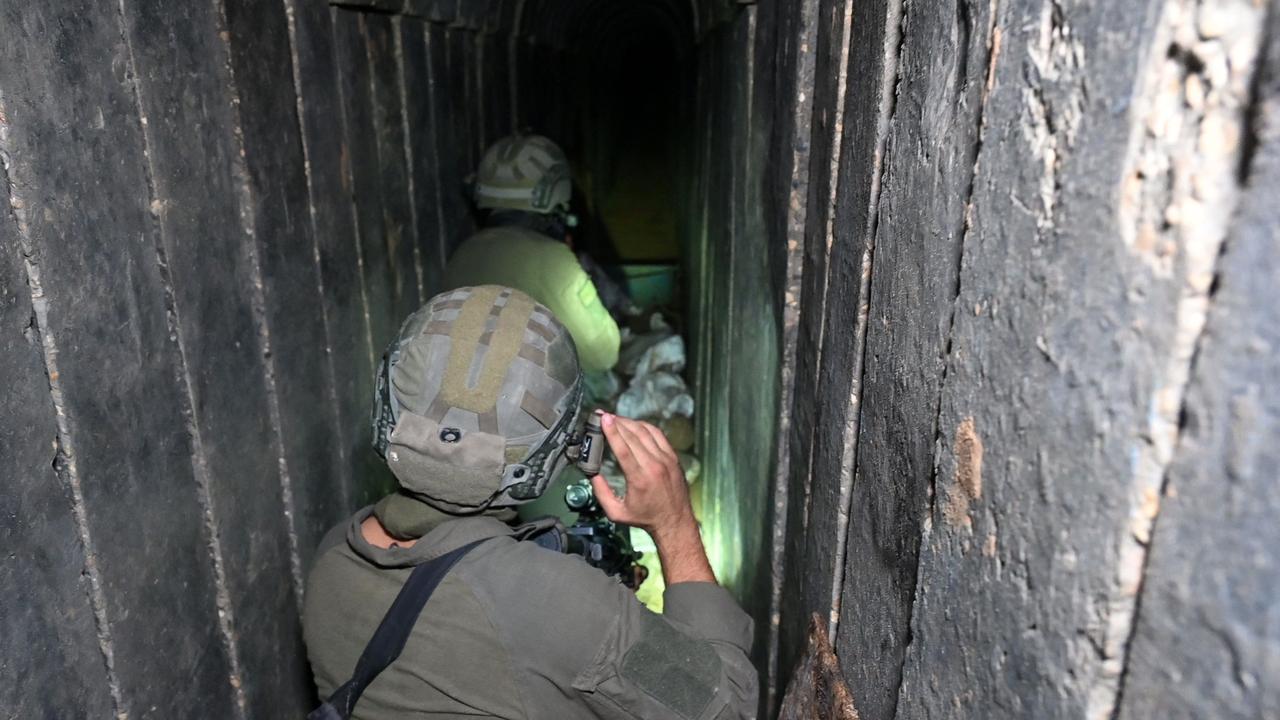Israeli spokesman stunned into silence during interview about looming hostage release
The Israeli government’s spokesman was momentarily stunned into silence during a TV interview by a question he never could have expected.
A spokesman for the Israeli government was momentarily stunned into silence during an interview on British television overnight, as a breakfast news anchor grilled him on a looming pause in the Gaza war to facilitate the release of hostages held by Hamas.
Eylon Levy appeared on Sky News UK to discuss the temporary ceasefire, which is expected to begin at 7am on Friday, local time, and last four or five days. Hostages will begin to leave Gaza at 4pm in the afternoon.
In return for the release of 50 hostages - about a fifth of the 239 still being held in the Strip - Israel will release 150 Palestinian prisoners.
That 3:1 ratio is the result of extended negotiations between Israel and Hamas, mediated by Qatar and helped by both Egypt and the United States. It is the bitter price Israel has accepted to bring some of its people home to safety.
“I was speaking to a hostage negotiator this morning,” Sky News host Kay Burley said during the interview.
“He made the comparison between the 50 hostages that Hamas has promised to release, as opposed to the 150 prisoners that are Palestinians that Israel has said it will release. And he made the comparison between the numbers, and the fact that - does Israel not think that Palestinian lives are valued as highly as Israeli lives?”
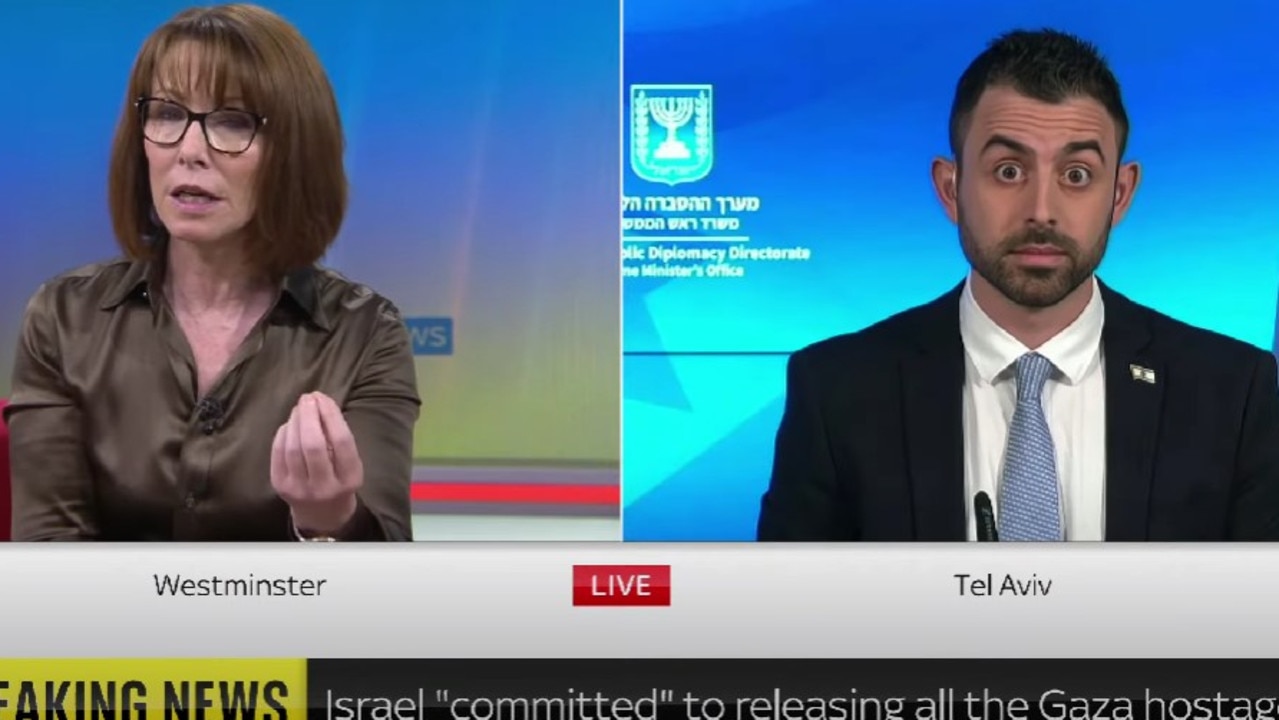
Mr Levy took a beat before launching into an impassioned answer.
“That is an astonishing accusation,” he said.
“If we could release one prisoner for every one hostage, we would obviously do that.
“We are operating in horrific circumstances. We are not choosing to release this prisoners, who have blood on their hands - we are talking about people who have been convicted of stabbing and shooting attacks.
“I notice the question of proportionality doesn’t interest Palestinian supporters when they are able to get more of their prisoners out.
“But really, it is outrageous to suggest that the fact that we are willing to release prisoners who are convicted of terrorism offences - more of them than we are getting our own innocent children back - somehow suggests that we don’t care about Palestinian lives? Really, that’s a disgusting accusation.”
Burley, entirely unfazed, moved on to her next question, which was about the political future of Israeli Prime Minister Benjamin Netanyahu.
The question that so incensed Mr Levy had its origin in her earlier interview with Dr James Alvarez, a pyschologist with experience as a hostage negotiator.
When asked about the constantly mounting death toll in Gaza, and whether it could derail the prisoner swap negotiations.
“One of the factors that makes me wonder is the asymmetry between the numbers - it’s 50 Israelis versus 150 Palestinians. That has an implication that, you know, that the individual worth of an Israeli is more than a Palestinian,” Dr Alvarez said.
“I’m guessing that’s going to cause problems to the Palestinians.”
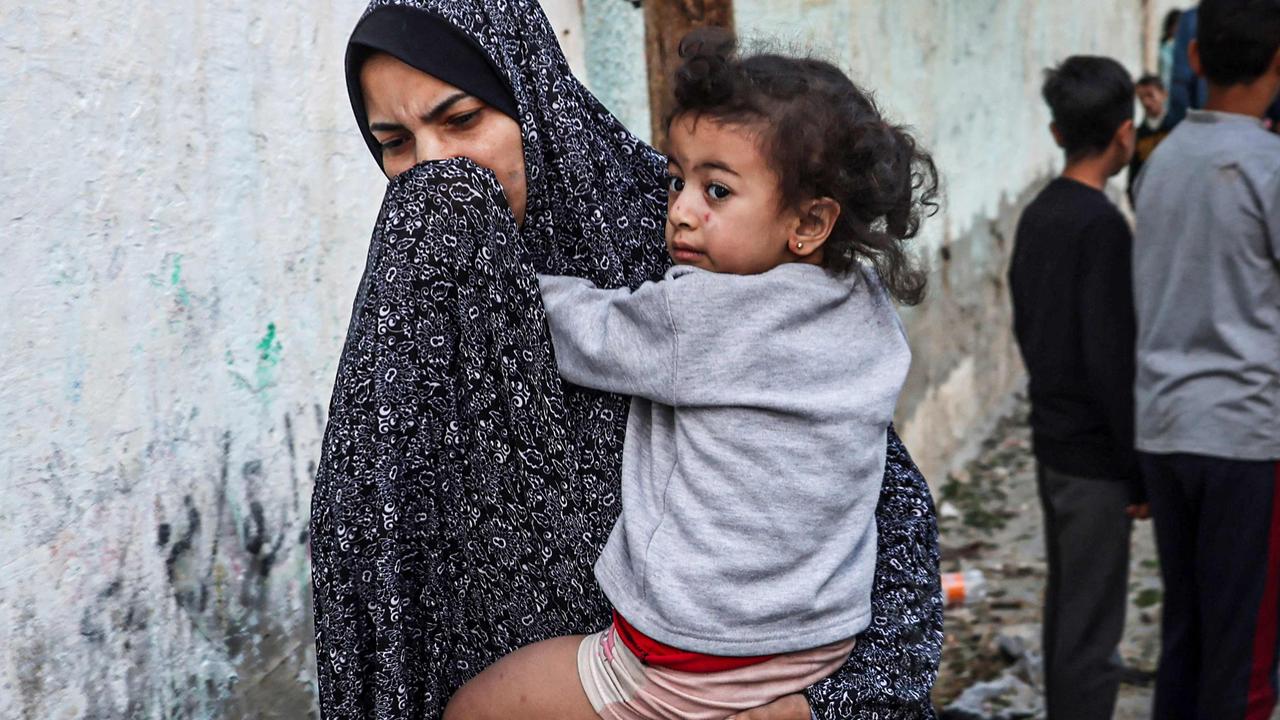
The two interviews mentioned above came during a delay in the implementation of the temporary ceasefire, which was originally expected to begin on Thursday.
A Palestinian official told AFP the delay was due to confusion over “last minute” details, namely which hostages would be released and how.
Lists of the hostages to be freed had been exchanged by both sides, the Palestinian official said, citing his knowledge of the negotiations but asking to remain anonymous.
It was unclear whether the Red Cross would have access to the hostages before their release into Egypt, and whether it would be able to care for those who remained behind.
Qatar, which has acted as a mediator between Hamas and Israel, has announced the ceasefire will go into effect on Friday morning, with the hostage releases to begin in the afternoon.
All of the Palestinians to be freed are either women or aged under 19.
Israel arrests director of Gaza hospital
Meanwhile Israeli forces in the Gaza Strip have arrested the director of its biggest hospital, as well as other medical personnel.
“Dr Mohammad Abu Salmiya was arrested, along with several other senior doctors,” Khalid Abu Samra, a chief of department at the al-Shifa hospital, told AFP on Thursday, local time.
Israeli Broadcasting Authority also reported on the arrests. And the Israeli publication Haaretz, citing an IDF source, said Dr Abu Salmiya had been arrested while in the humanitarian corridor heading towards the south of Gaza.
“In the hospital, under his management, there was extensive Hamas terrorist activity,” the IDF said in a statement confirming the arrest.
“Findings of his involvement in terrorist activity will determine whether he will be subject to further questioning.”
Dr Abu Salmiya, in addition to being al-Shifa hospital’s director, is chairman of the Gaza Strip’s emergency committee. He has been a prominent voice in the international media since Israel began its military operation in response to Hamas’s atrocities on October 7.
During those media appearances, he has repeatedly highlighted the humanitarian crisis in Gaza and strain on its hospitals – while unambiguously denying Israel’s claim that al-Shifa hospital acted as, or stood atop, a command centre for Hamas militants.
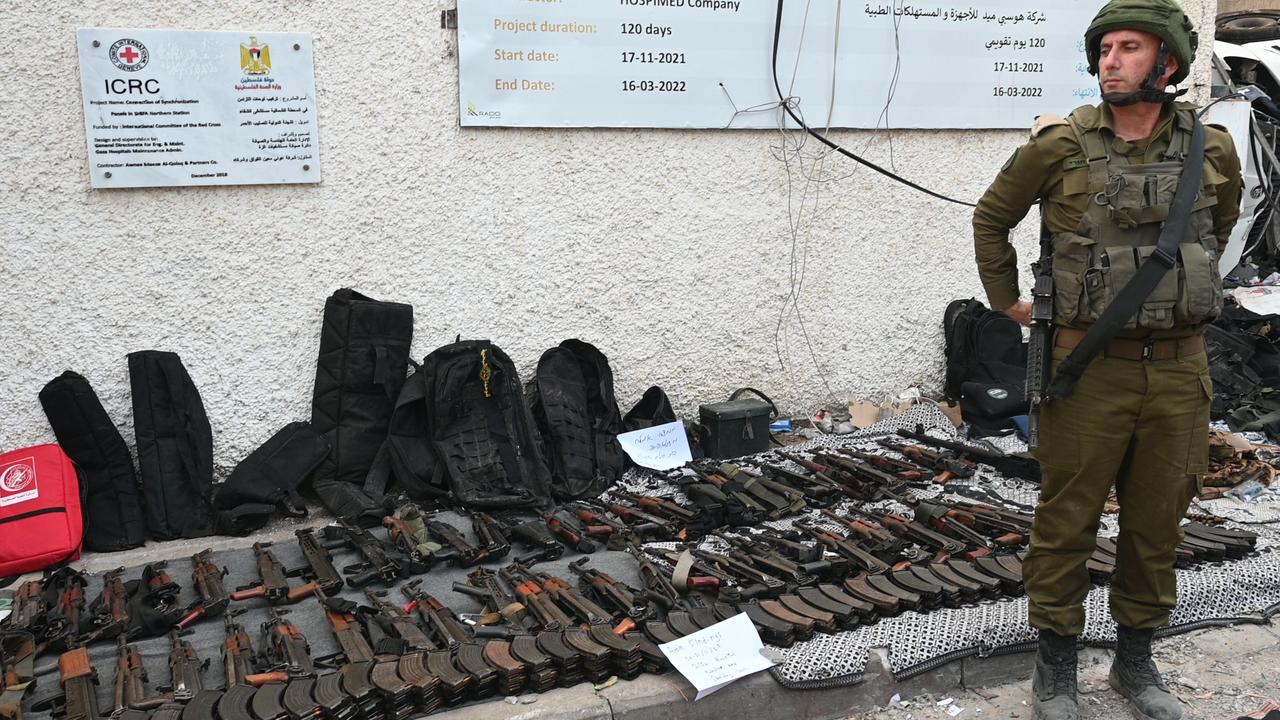
“Doctor I wanted to ask you to address, directly, one of the main allegations about your hospital, al-Shifa hospital, and that is that you’re over the top of, or part of, a Hamas base,” he was asked during an interview with America’s BreakThrough News on November 9, for example.
“This is pure slander,” Dr Abu Salmiya responded.
“Al-Shifa is the largest hospital in the West Bank and Gaza Strip. The largest hospital that includes all medical specialties – the largest nursery, the largest ICU, the largest dialysis department. And people come from all over the Gaza Strip.
“Even now, in this war, when the representatives of the International Red Cross, the World Health Organisation, the United Nations visit us, they all come to al-Shifa. I do not think that, if it were a military base, such delegations could come to the hospital.
“I do not think these people are sacrificing themselves coming to a Hamas military base. This accusation is totally unacceptable.
“Not to mention that I asked, in more than one press conference, for any international organisation or any human rights organisation, or even any party specified by the occupation (by which he meant Israel) to come to our hospital. Search through our entire hospital, all its corridors, from top to bottom. All rooms will be open.
“If there is a Hamas base, let the occupation do whatever the occupation wants. But this is a civil hospital that serves the wounded people.”
.@EugenePuryear: "How would you address the main accusation by Israel that Al-Shifa hospital is part of a base for Hamas?"
— BreakThrough News (@BTnewsroom) November 9, 2023
Dr. Mohammad Abu Salmiya: "This is pure slander."
WATCH Director of Al-Shifa hospital in Gaza Dr. Abu Salmiya: https://t.co/OLwRUFxTRipic.twitter.com/afiI77wng4
Israel has accused the hospital’s medical staff, as well as international aid organisations, of being complicit in hiding Hamas’s military presence in the hospital.
Since taking control of al-Shifa, it has presented evidence of militant activity, including security footage of hostages being transported through the building’s corridors at gunpoint, weapons it said were left behind by Hamas, and footage of underground tunnels the IDF believes were part of the terrorist group’s vast network.
“It is important to emphasise that from the moment the IDF publicly exposed the use of hospitals for terrorist activity a few weeks ago, Hamas has persistently worked to conceal infrastructure and cover up evidence,” an IDF spokesman said last week.
Hamas has long been known to hide among Gaza’s civilian population, and Israel alleges it uses structures like schools and hospitals as cover – a “human shield” strategy.
